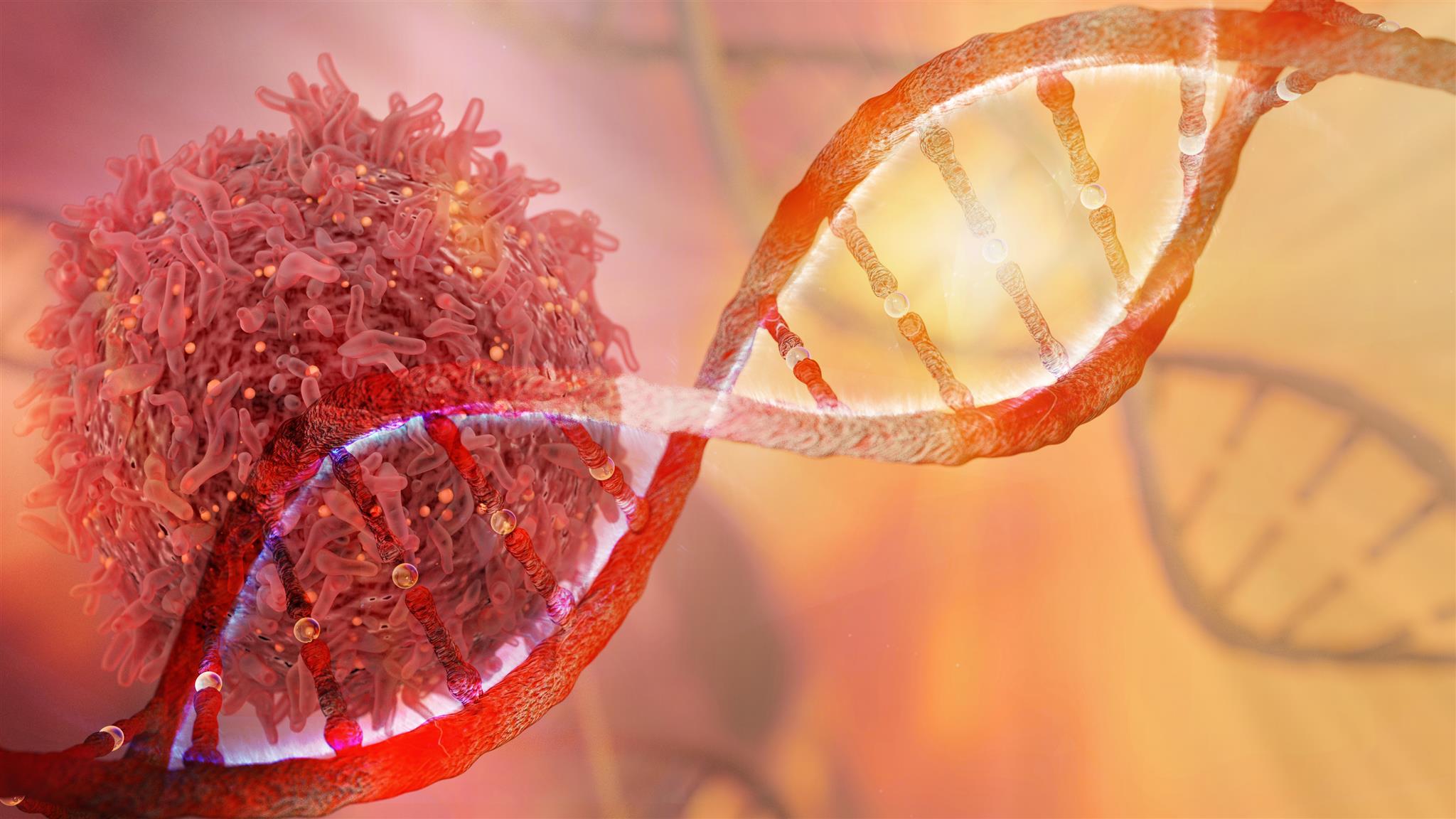The Numbers
Based on the World Health Organization (WHO), colorectal cancer is the second most frequently occurring cancer and the third leading cause of cancer-related deaths in the world. According to WHO, an estimated 1.8 million new cases of colorectal cancer are predicted for 2018, and 862 thousand deaths are expected as a result. The overall lifetime risk of developing colorectal cancer is slightly higher in men than in women, with about 4.49% risk in men and 4.15% in women.

What is Cancer?
Tumors grow because of the very fast proliferation or reproduction of cells. The cells keep growing and dividing, making new cells and gradually forming a mass of cells, which is the tumor. The tumor can be benign (non-cancerous) or malignant (cancerous). Cancer is due to an out-of-control growth of abnormal cells, which bear DNA changes and other alterations and have the ability to then metastasize or move from the primary site of the tumor to other organs. Benign tumors do not have the ability to metastasize.
The transformation of normal to abnormal cells is a multi-step process that requires a long time and generally multiple mutations to arise. When these cells accumulate mutations, they start to grow and divide faster, eventually forming a mass of abnormal cells. A tumor of 1g typically contains 108-109 cells. This would result from about 30 doublings in volume starting from a single cell and would usually require several years in the making. However, after this point, the tumor has so many cells that with only 10 additional doublings in volume, it could reach a weight of 1kg.
In metastasis, cancer cells can invade other organs and interfere with their function. At the primary site where the cancer was initiated, the abnormal growth of the cancerous cells can crowd out the normal cells and inhibit their normal functioning. However, metastases are generally the main cause of death from cancer.
Cancer is the result of an interaction between a patient’s genetics and environmental factors. According to WHO, “around one third of deaths from cancer are due to the 5 leading behavioral and dietary risks: high body mass index, low fruit and vegetable intake, lack of physical activity, tobacco use, and alcohol use.”
What is Colorectal Cancer?
Colorectal cancer develops in the colon or the rectum, which together make up our body’s large intestine. Both the colon and rectum are part of our digestive system. The colon is about 1.5m (5 feet) long and makes up the longest part of the large intestine. This is where water and minerals from our food after digestion are absorbed into our bloodstream. The rectum is where feces are collected to then be removed through the anus. The rectum is about 20cm (6 inches) in length.
Colorectal cancer is cancer that initiates in the colon or rectum. This type of cancer can also be individually termed colon cancer and rectal cancer to make a distinction between its starting location. However, the two share many characteristics in common and tend to be grouped together.
Most frequently, colorectal cancer begins as a growth on the inner lining of the large intestine’s wall. This growth is called a polyp. Many of these polyps that develop in the large intestine are benign and never change to become cancerous. However, some types of polyps can develop into cancer over time. It is estimated that this requires about 10 years.
There are two types of polyps, adenomatous and hyperplastic or inflammatory polyps. Adenomatous polyps, also called adenomas, indicate a pre-cancerous state, and these can some times become cancer. Generally, hyperplastic or inflammatory polyps do not become cancer.
What Are the Risk Factors for Colon Cancer?
Factors that can be controlled:
- Obesity.
- Lack of physical activity.
- Cigarette smoking.
- Excessive alcohol consumption.
- Certain dietary factors such as the consumption of red meat, heavily processed foods, certain cooking methods such as smoking and frying, low intake of dietary fiber, low intake of fruit and vegetables.
Factors that cannot be controlled:
- Older age (over 50 years old).
- Presence of long-standing Irritable Bowel Disease (IBD).
- Personal history of having colorectal polyps or colorectal cancer.
- A family history of colorectal cancer or adenomatous polyps.
- Having an inherited syndrome such as:
- Lynch syndrome. This is due to inherited mutations in the MLH1 or MSH2 gene (or some other genes as well). These genes’ normal function is to repair DNA damage.
- Familial Adenomatous Polyposis (FAP). This is due to inherited mutation in the APC gene, which leads to the formation of multiple polyps.
- Type 2 Diabetes.
- Our racial or ethnic background. For instance, African Americans and Jews of Eastern European descent (Ashkenazi Jews) have some of the highest rates of incidence.
- More rare conditions linked to colorectal cancer are Peutz-Jeghers syndrome (PJS) and MYH-associated polyposis (MAP).

What Are the Alarm Symptoms?
Early colorectal cancer often has no symptoms, which is why preventative screening is so important. As a tumor grows, it may bleed or obstruct the intestine leading to the following serious symptoms:
- A persistent change in bowel habits, such as diarrhea, constipation, or narrowing of the stool.
- A feeling that you need to have a bowel movement, which is not relieved by doing so.
- Bleeding from the rectum.
- Dark-colored stools, or blood in the stool.
- Cramping or abdominal pain.
- Weakness, fatigue or anaemia (low iron levels).
- Unintentional loss of weight.
Colorectal cancer symptoms can be mimicked by conditions that are not related to cancer, including Irritable Bowel Syndrome (IBS), Irritable Bowel Disease (IBD), hemorrhoids and infection. However, it is of outmost importance to seek medical advice if these symptoms are present, in order determine the cause of the symptoms and rule out serious disease.
Diagnosis
If any of the above symptoms are present or any suspicious findings are recorded upon a general screening, the doctor will want to follow-up with a list of tests and exams.
The doctor will take a family history and medical history to establish any risk factors present. This will be accompanied by a physical exam. During the physical exam, the doctor will examine the abdomen and the rest of the body. He/she will also order blood and stool tests, which are meant to identify the presence of any cancer markers or abnormally elevated chemicals in the blood or any blood present in the stool.
Additionally, a colonoscopy, biopsy, digital rectal exam, CT scan, ultrasound or MRI of the colon or rectum might be used to determine if cancer or another problem exists.
What Are the Different Types of Colorectal Cancer?
The most common type of colorectal cancer, which occurs in more than 90% of the cases, is adenocarcinoma.
Other less frequently occurring types of colorectal cancer are: gastrointestinal carcinoid tumors, gastrointestinal stromal tumors (GISTs), lymphomas that initiate in the colon, or sarcomas in the blood vessels, muscle layers or other connective tissues in the wall of the colon or rectum.
What Is the Possible Treatment for Colorectal Cancer?
Cancer treatment aims to destroy the cancer cells and/or slow down or stop these cells from spreading.
Types of treatment for colorectal cancer will depend on the stage and location of the disease (i.e., if it’s only found localized or has spread to other regions).
(a) Local treatments which target the tumor and treat it without affecting or targeting other areas of the body:
- If the cancer is at its very early stage and is only found in a polyp, then the polyp could be removed during a colonoscopy or laparoscopically.
- Surgery to remove invasive colorectal cancer and perhaps lymph nodes.
- Radiation therapy targeting the cancer region only. This employs high-energy rays (i.e., X-rays), which strike and kill the cancer cells.
(b) Systemic treatments, which are therapies used to send the active ingredient through the bloodstream in order to reach the cancer cells in various locations in the body:
- Chemotherapy uses drugs to kill the cancer cells.
- Targeted therapy works differently to chemotherapy. This kind of treatment is more specific since it identifies and targets specific molecules that are unique to the cancer cells. Thus, it targets only those cancer cells, leading them to stop dividing or die. Targeted therapy is administered alone or in combination with chemotherapy and is usually given to patients with more advanced colorectal cancers. Some patients respond positively to such treatments, while others do not.
- Immunotherapy is an exciting and relatively newer field, which has provided novel approaches to targeting cancer. The therapy triggers the patient’s own immune system to identify the cancer cells and attack and destroy them. In July 2018, the combination of two specific immunotherapy drugs was approved by the Food and Drug Administration (FDA) in the USA as therapy for some specific cases of metastatic colorectal cancer. The latest research into cancer vaccines aims to push the patient’s immune system to find and fight the cancer cells.

Screening and Early Detection: Why Is Early Detection Important?
Screening means to look for the cancer or presence of polyps before the patient has symptoms. The idea is that if the cancer is found in its initial stages before it has metastasized, it will be easier to treat and survival rates are much higher. So, screening aims to remove polyps before they become cancerous or catch the cancer at its initial stages. However, evidence shows that only about 40% of colorectal cancers are currently spotted at such an early stage, thus bringing survival rates down.
The current guidelines for people with an average risk for colorectal cancer is to start screening at the age of 45 and continue with regular screening until the age of 75. Screening could involve either a stool-based test or colonoscopy. However, studies show that the colonoscopy is currently the most sensitive screening method.
Talk to your medical provider about any family history or risk factors that they should be aware of. Based on that, the doctor may recommend starting the screening even earlier.
Along with the necessary screening, prevention can also entail altering your diet and lifestyle or taking medication in order to decrease the risk of developing colorectal cancer.
Some of these changes can include:
- Eating a healthy diet, maintaining a healthy weight and reducing the consumption of alcohol and processed foods. We should include a healthy dose of fiber in our diets as fiber helps the food to move along the intestines easily, thus keeping the intestines healthy.
- Beating inactivity. Go out for walks, take the stairs instead of the elevator, find some time to go for a run or do a fun sport or gym activity that you enjoy. Research shows again and again that a sedentary lifestyle can be really bad for our health.
- Quitting smoking.
References
Colorectal Cancer Facts and Figures by the American Cancer Society (2014-2016)
National Cancer Institute -Colorectal Cancer Prevention (PDQ®)–Patient Version
Mayo Clinic -Colorectal Cancer
Cleveland Clinic -Colorectal Cancer: Chemotherapy and Immunotherapy
Pandurangan AK, Divya T, Kumar K, Dineshbabu V, Velavan B, Sudhandiran G. (2018) Colorectal carcinogenesis: Insights into the cell death and signal transduction pathways: A review. World J Gastrointest Oncol; 10(9):244-259.


